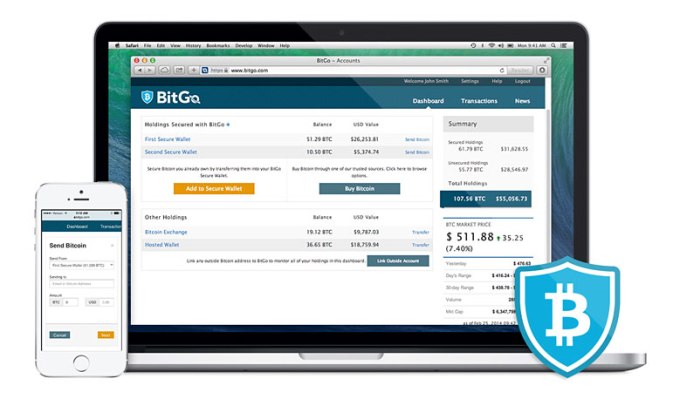For a long time, there’s been a philosophical split in the Bitcoin community about how to store crypto-currency on behalf of users.
Do you do it on the web, with something that resembles an e-mail or Paypal-like interface? Or should consumers held more responsible for storing their own Bitcoin offline? Do you make them handle their own public and private keys? Or do you take that complication out for a more accessible user experience?
BitGo is a company that is trying to pioneer a hybrid approach, with a web-based wallet that requires multiple signatures. That means there are three keys, instead of the two public and private keys associated with any individual Bitcoin address.
After poaching one of the creators behind Facebook Messenger, Ben Davenport, the company is announcing today that it has raised $12 million in funding led by Redpoint Ventures. Previous investors including Bridgescale Partners, Jeff Skoll, Bill Lee, and Eric Hahn also participated. Newer investors include Radar Partners, Founders Fund, Barry Silbert’s Bitcoin Opportunity Corp., Liberty City Ventures, Crypto Currency Partners and Ashton Kutcher’s A-Grade Investments.
While this is a large Series A round, BitGo faces a number of other really well-funded competitors like Andreessen Horowitz-backed Coinbase, Benchmark-backed Xapo and Accel-backed Circle, led by former Brightcove CEO Jeremy Allaire. Everyone has basically raised $20 million or more, given the legal costs and risks associated with the crypto-currency.
With the round, Redpoint’s founding partner Jeff Brody joins the company’s board along with Radar Partners’ Stratton Sclavos, who was the CEO of Verisign from 1995 to 2007.
BitGo says that competing wallets backed by one private key are vulnerable because they have a single point of attack. So instead, BitGo built a wallet that requires “2-of-3 keys” to sign any transaction. Those three keys include an online transactional key, which lives in the browser, a back-up offline key, which can live in a vault or on a piece of paper, and a third key retained by BitGo.
After creating a multi-signature wallet last year, BitGo is branching out and calling itself a security-as-a-service platform for Bitcoin. On top of the wallet, it offers BitGo Enterprise, a multi-user and multi-signature product for corporations and financial institutions.
